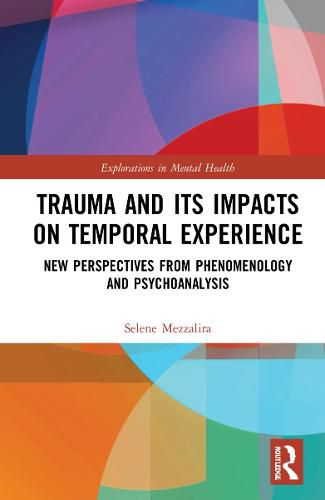Readings Newsletter
Become a Readings Member to make your shopping experience even easier.
Sign in or sign up for free!
You’re not far away from qualifying for FREE standard shipping within Australia
You’ve qualified for FREE standard shipping within Australia
The cart is loading…






This unique text develops an original theoretical framework for understanding the relationship between trauma and time by combining phenomenological and psychoanalytical traditions.
Moving beyond Western psychoanalytical and phenomenological traditions, this volume presents new perspectives on the assessment and treatment of trauma patients. Powerfully illustrating how the temporal dimension of a patient’s symptoms has until now been overlooked, the text presents a wealth of research literature to deepen our understanding of how trauma disrupts individual temporal experience. Ultimately, the resulting phenomena that occur (including dissociation and cognitive distortions) position time as a transdiagnostic psychological dimension, closely connected to the subject’s sense of self.
This text will benefit researchers, academics, and educators with an interest in psychoanalysis, phenomenology, and trauma and dissociation studies more broadly. Those specifically interested in the philosophy of the mind, Freud, and psychotherapy will also benefit from this book.
$9.00 standard shipping within Australia
FREE standard shipping within Australia for orders over $100.00
Express & International shipping calculated at checkout
This unique text develops an original theoretical framework for understanding the relationship between trauma and time by combining phenomenological and psychoanalytical traditions.
Moving beyond Western psychoanalytical and phenomenological traditions, this volume presents new perspectives on the assessment and treatment of trauma patients. Powerfully illustrating how the temporal dimension of a patient’s symptoms has until now been overlooked, the text presents a wealth of research literature to deepen our understanding of how trauma disrupts individual temporal experience. Ultimately, the resulting phenomena that occur (including dissociation and cognitive distortions) position time as a transdiagnostic psychological dimension, closely connected to the subject’s sense of self.
This text will benefit researchers, academics, and educators with an interest in psychoanalysis, phenomenology, and trauma and dissociation studies more broadly. Those specifically interested in the philosophy of the mind, Freud, and psychotherapy will also benefit from this book.